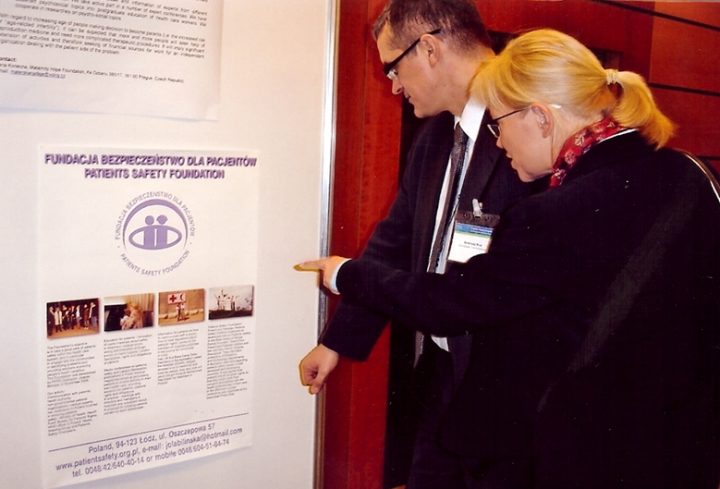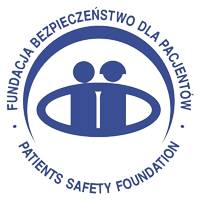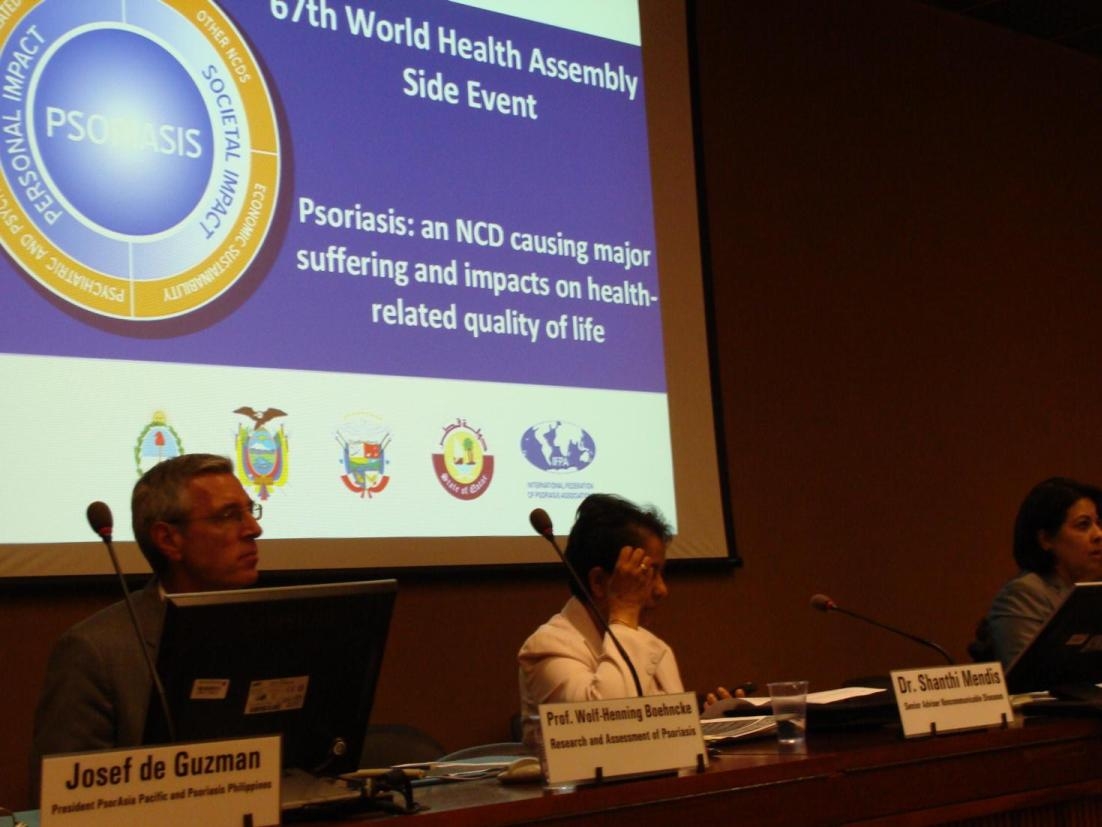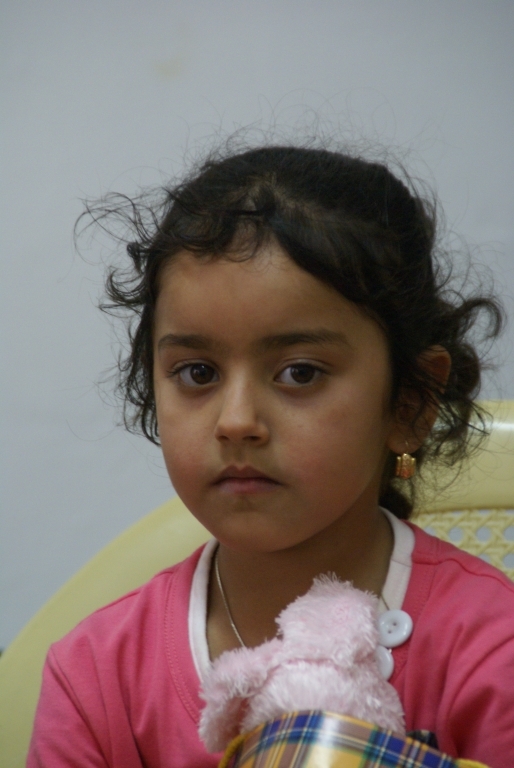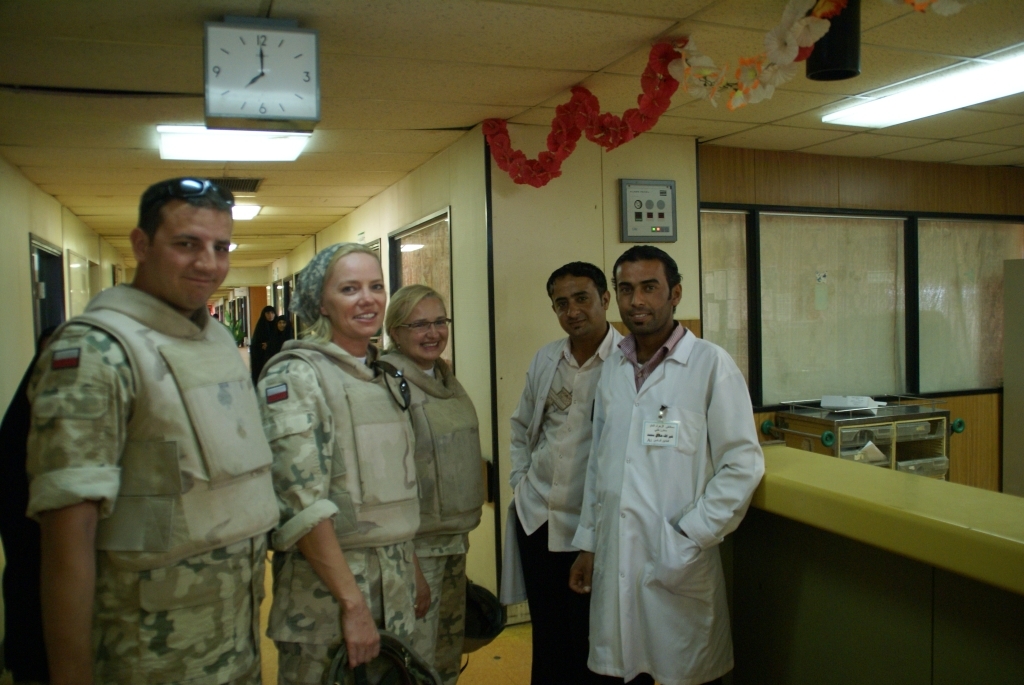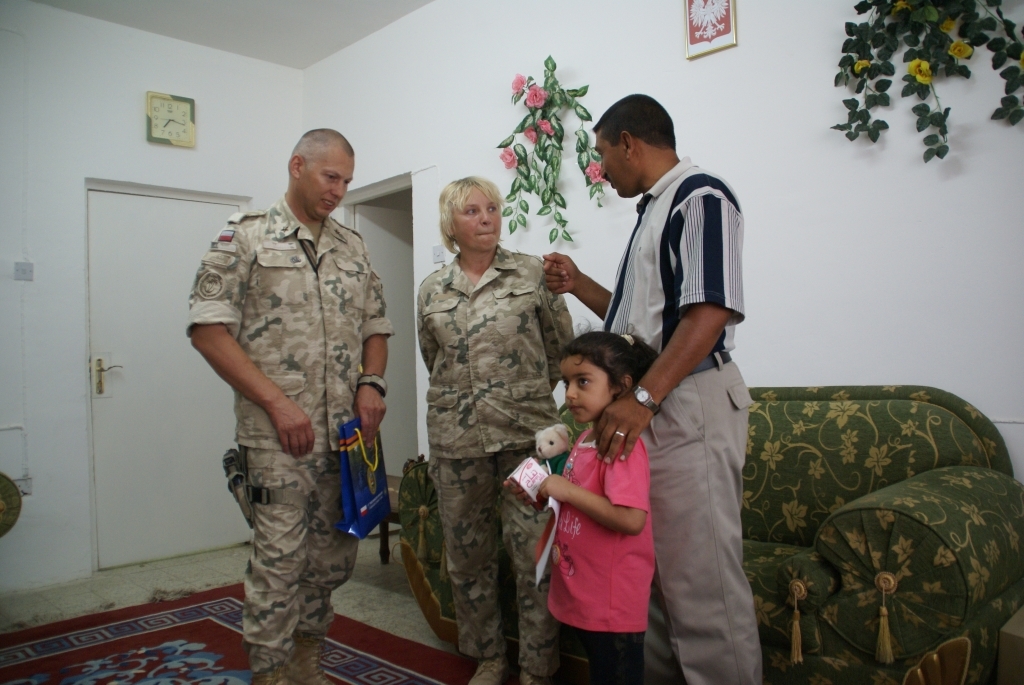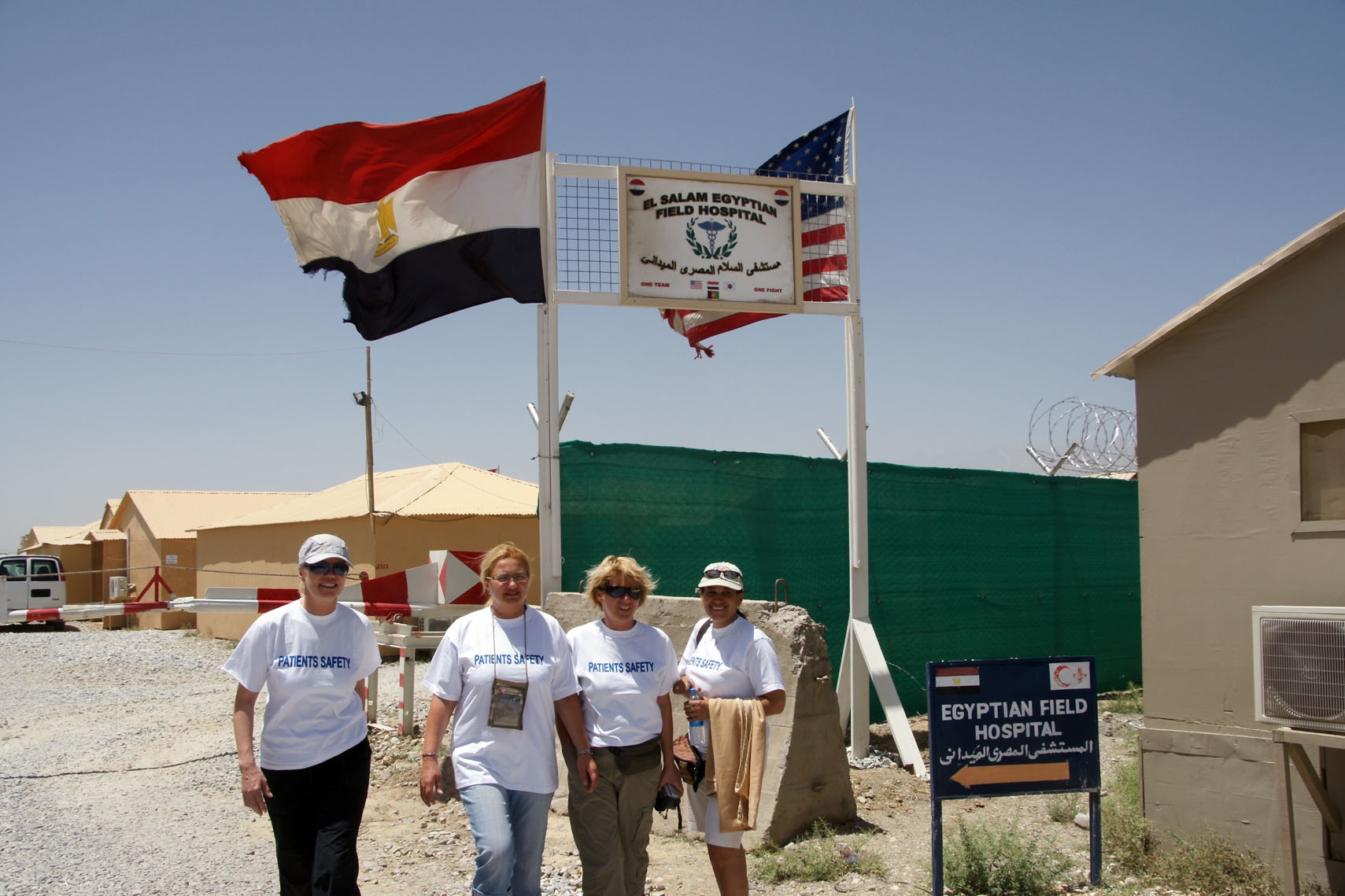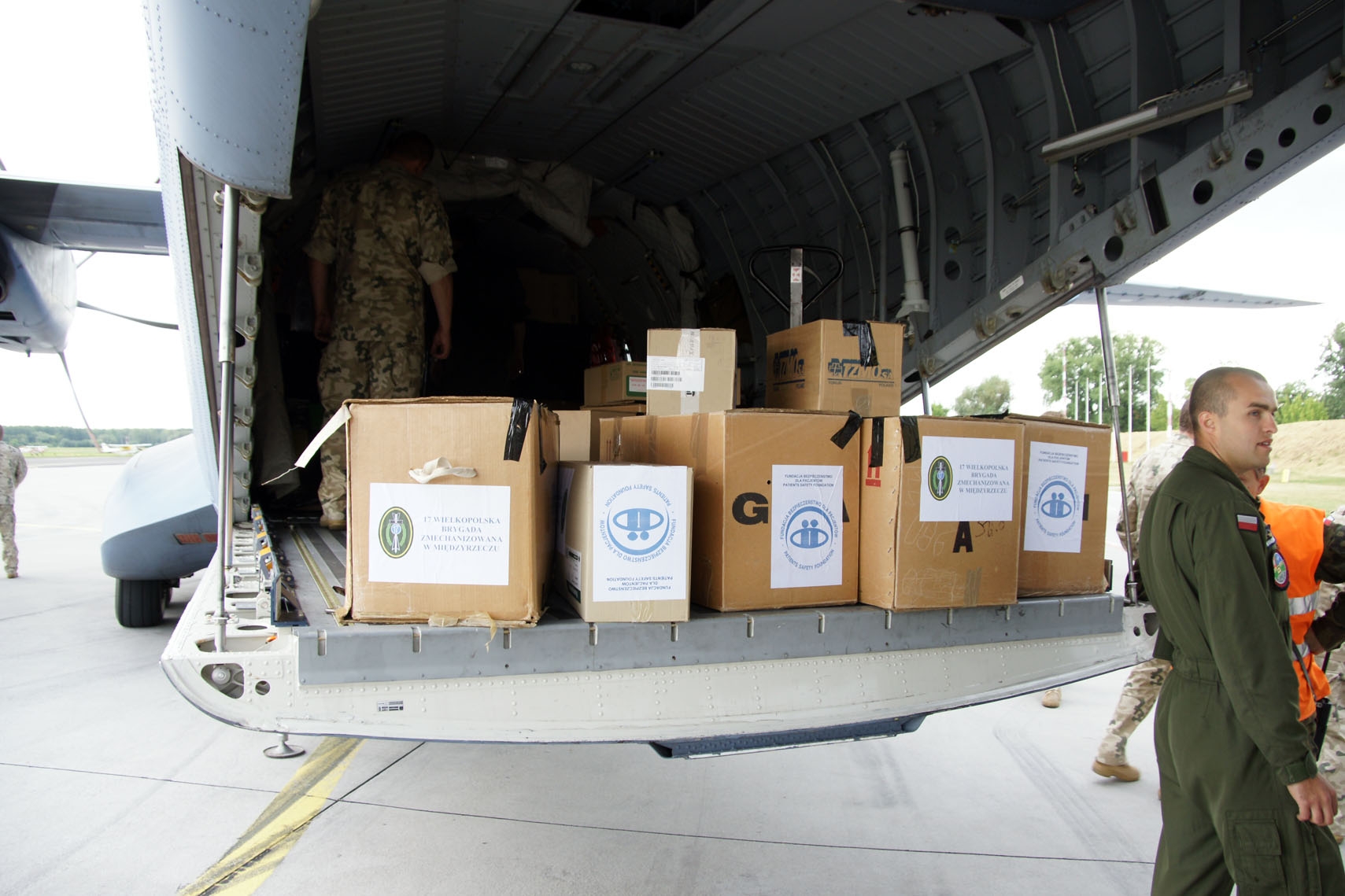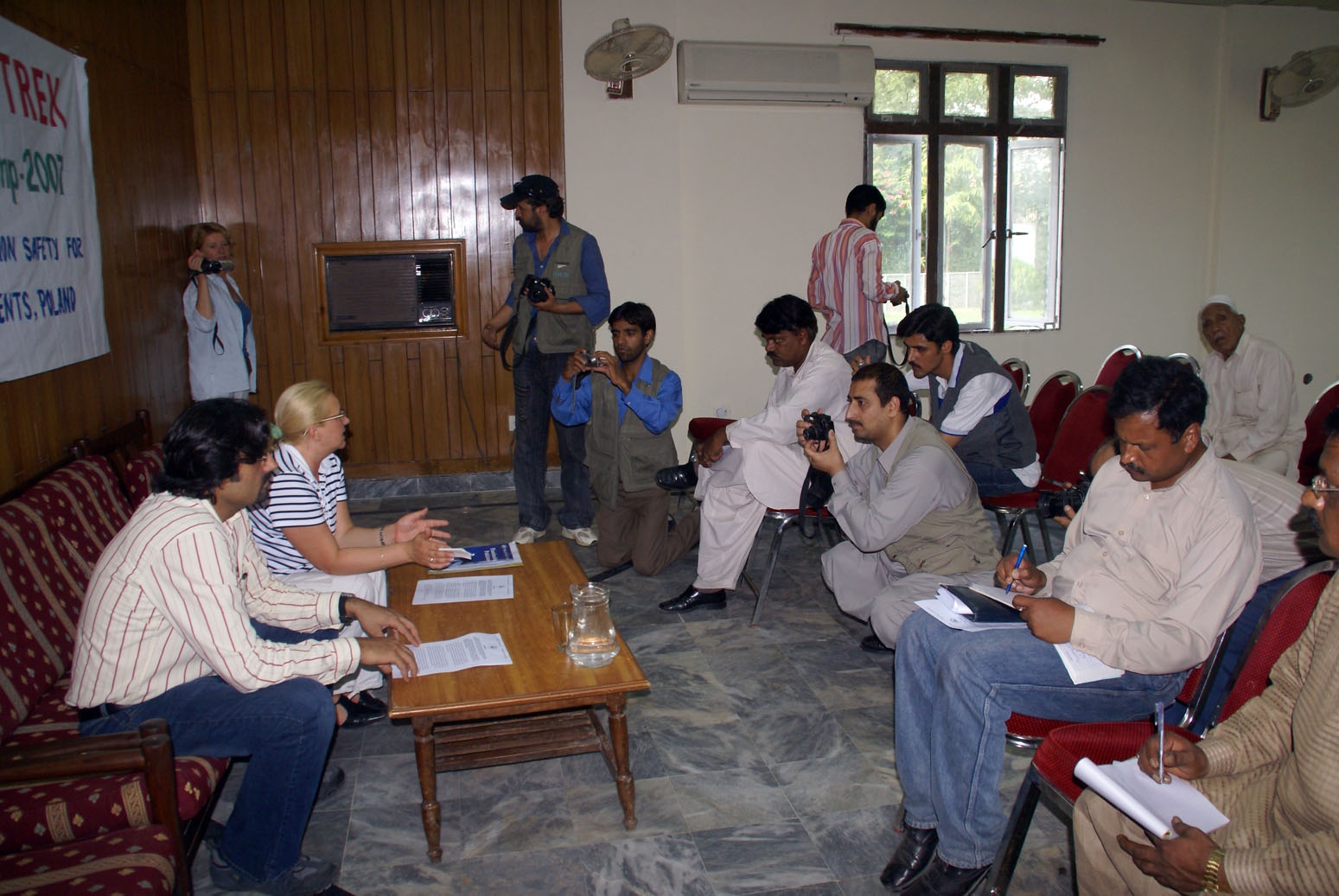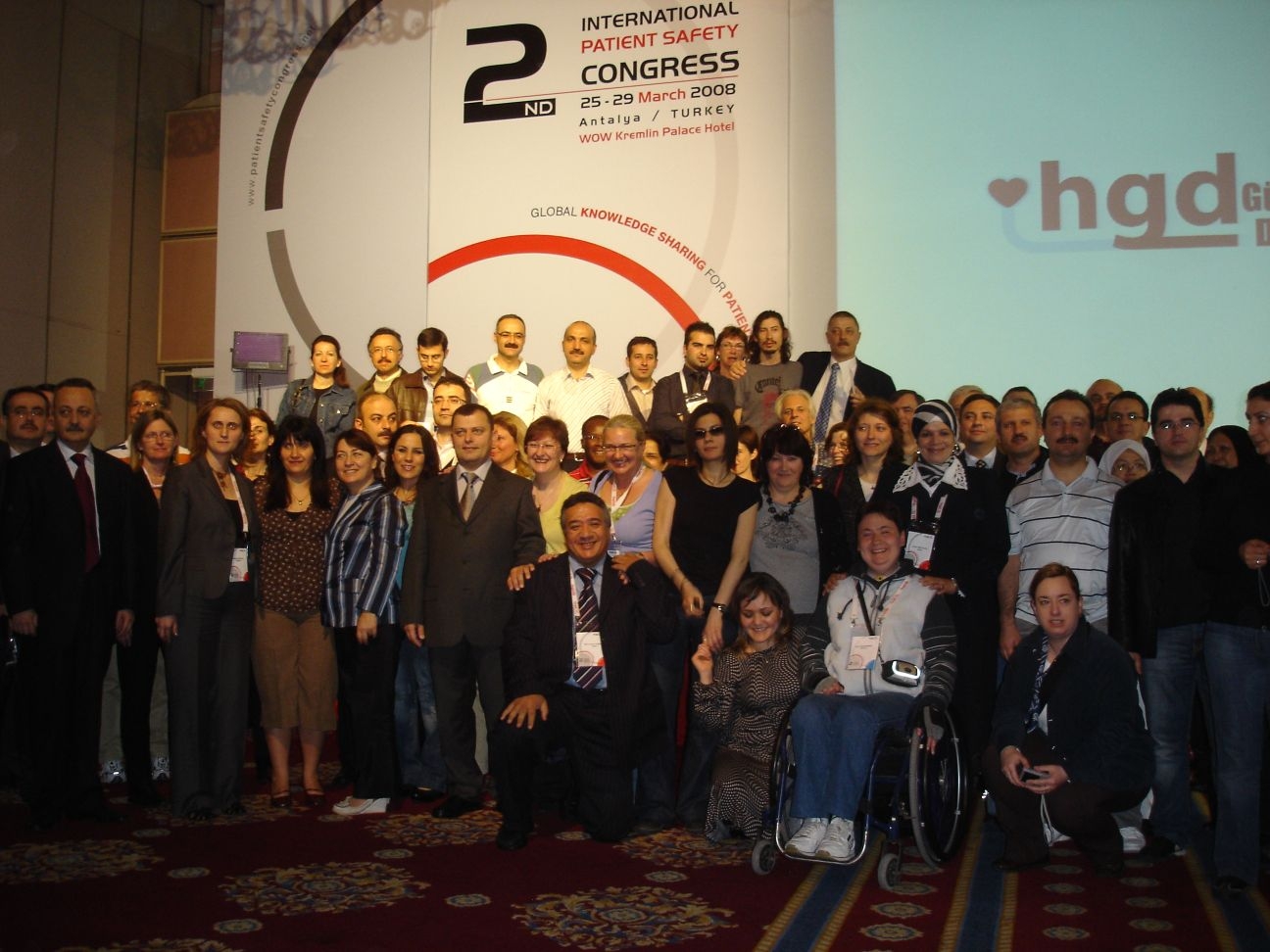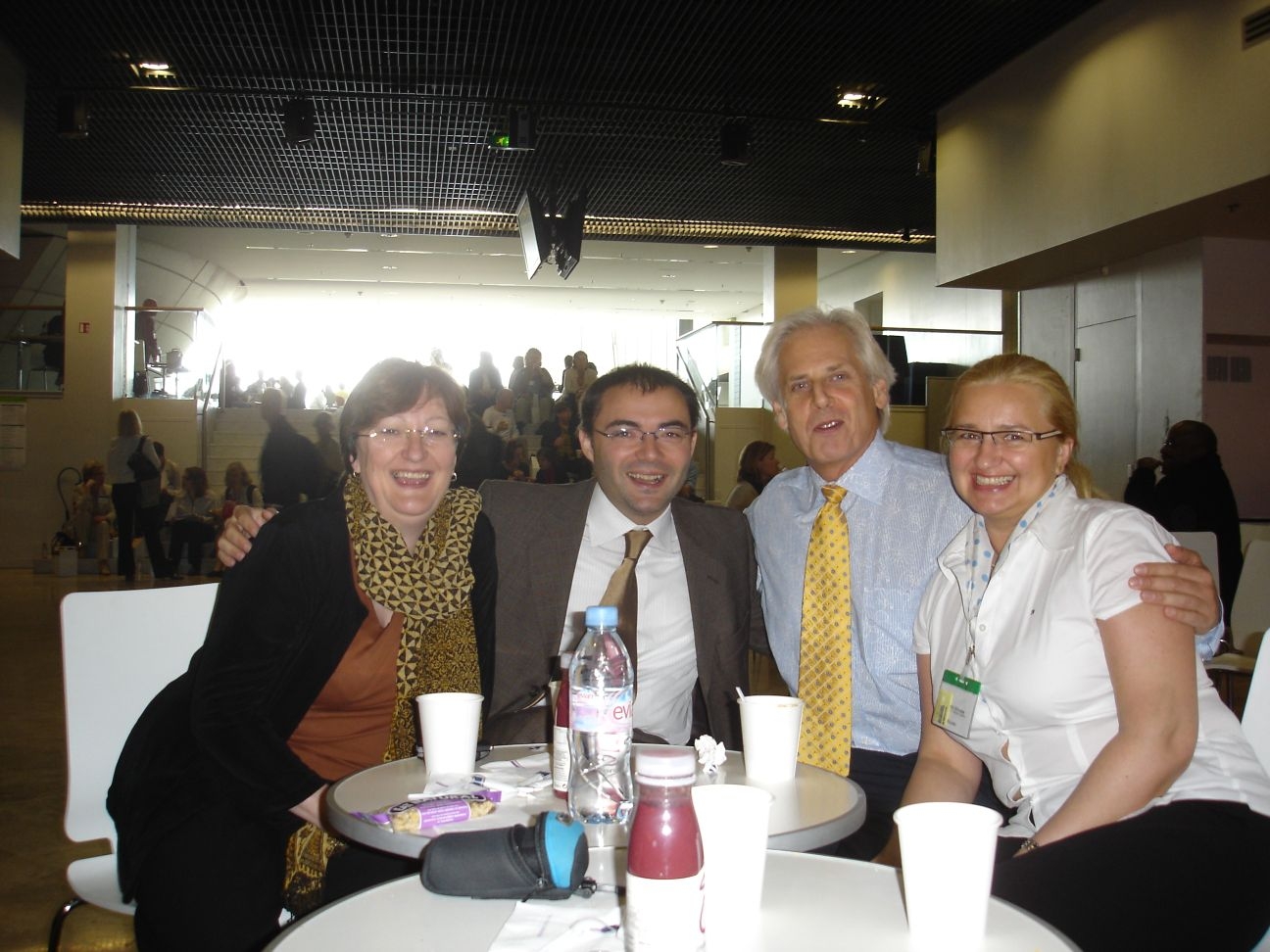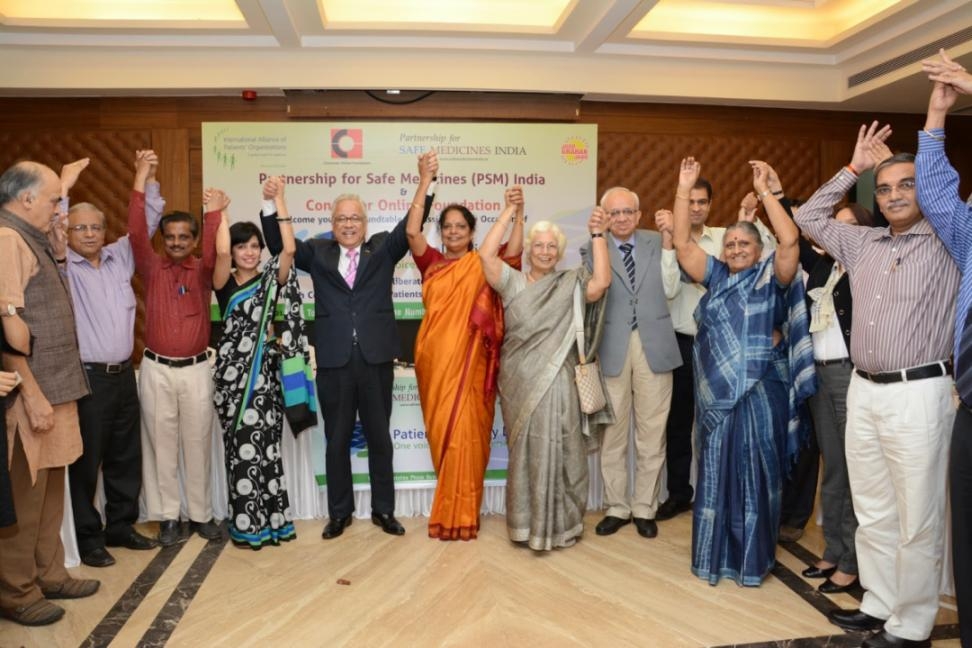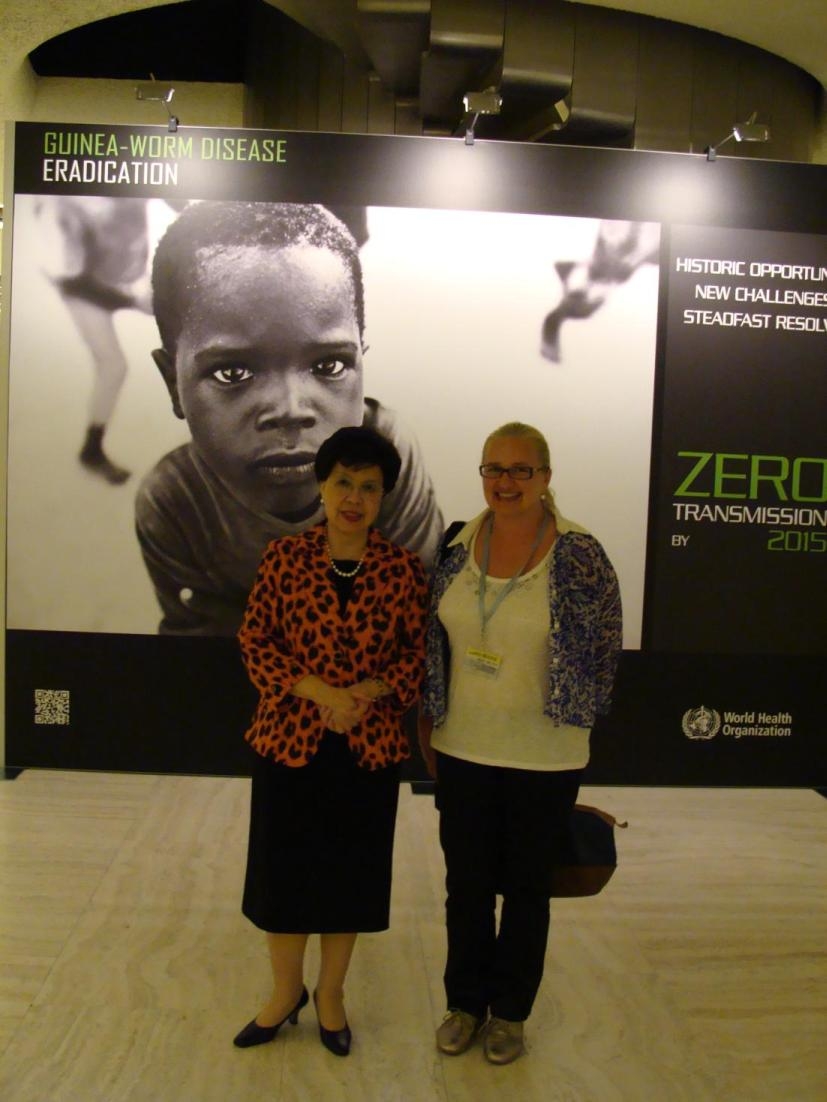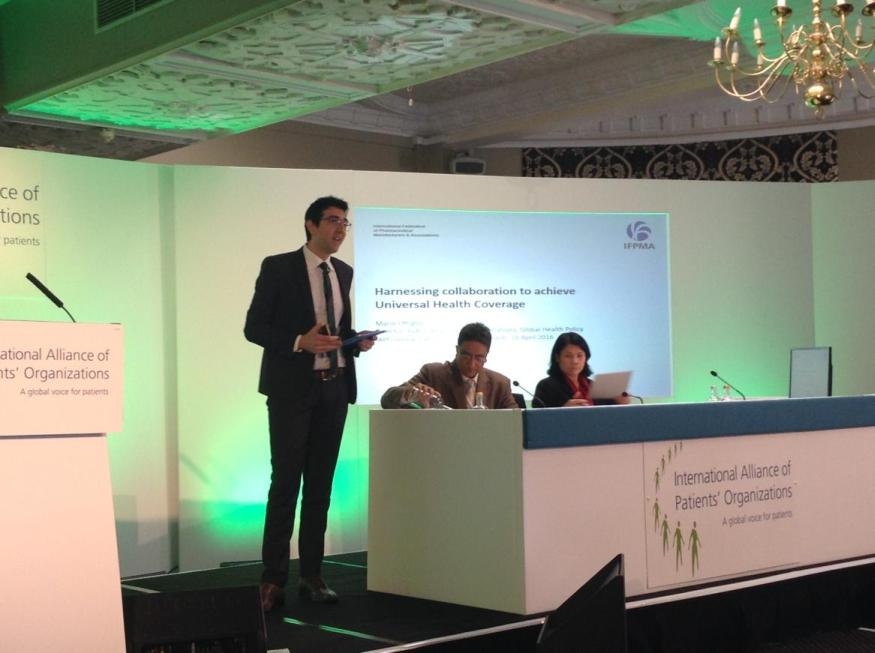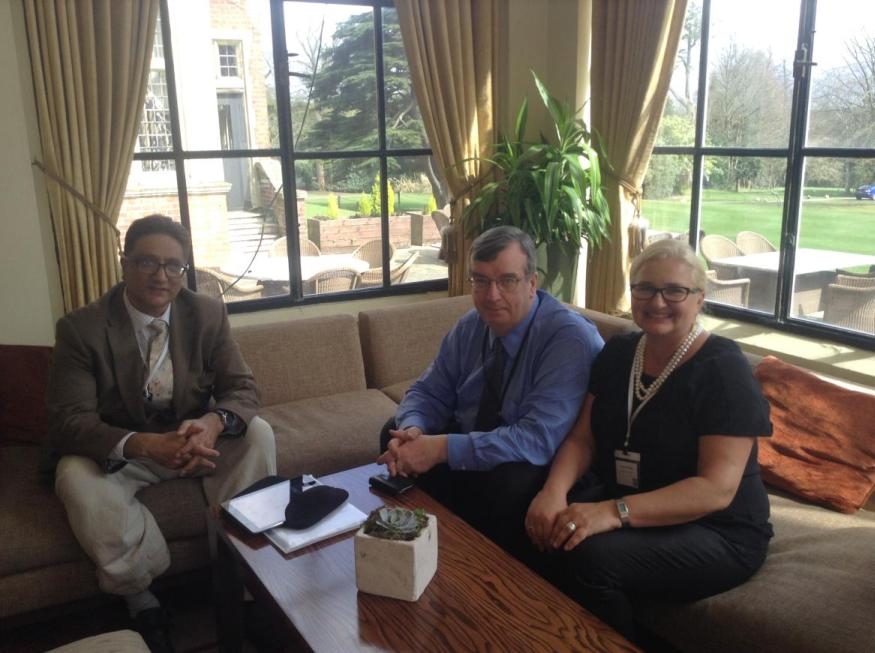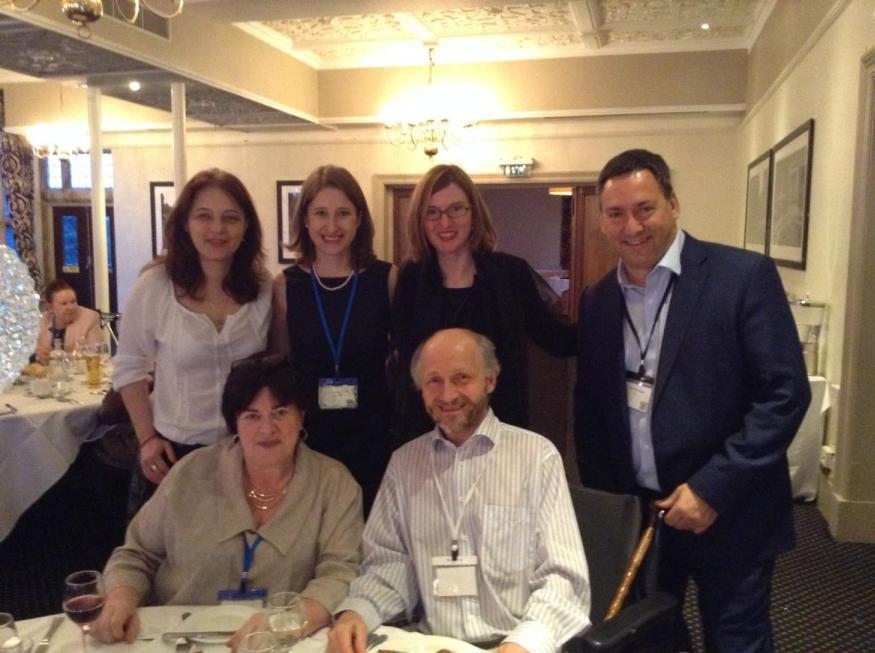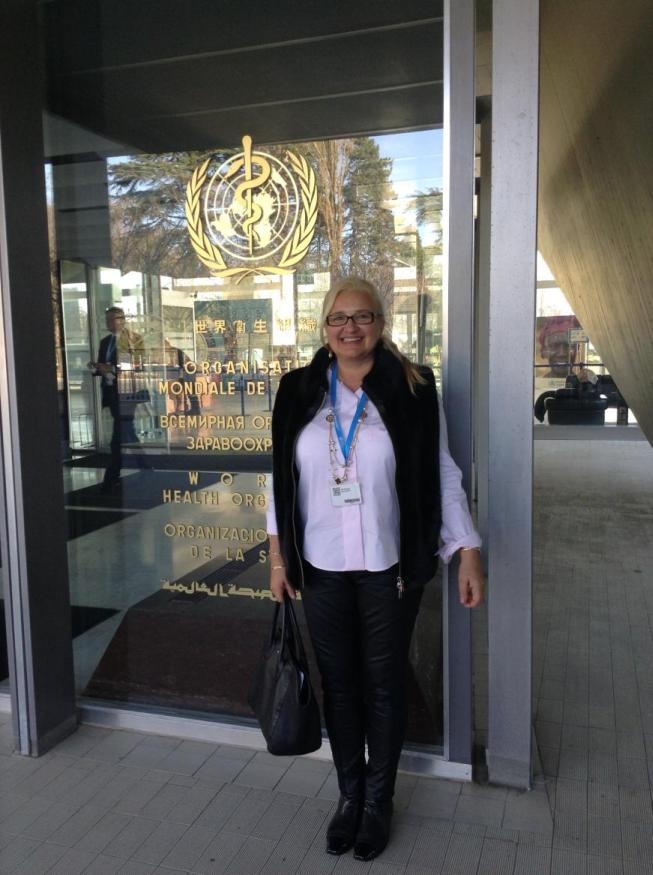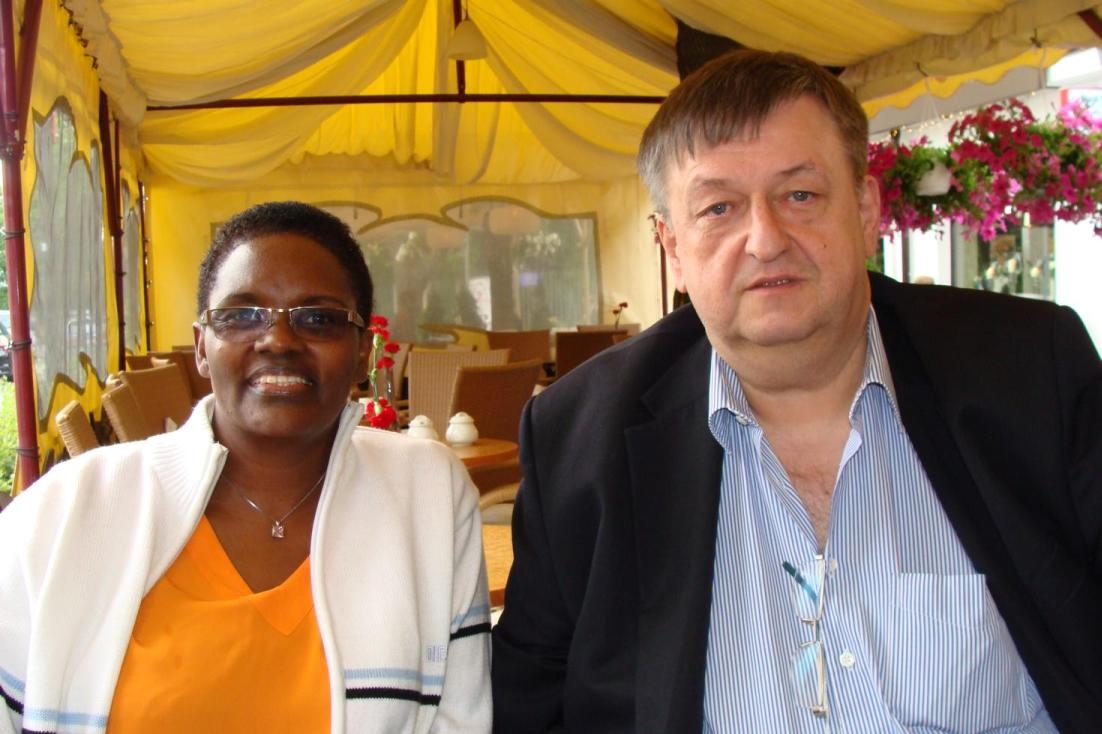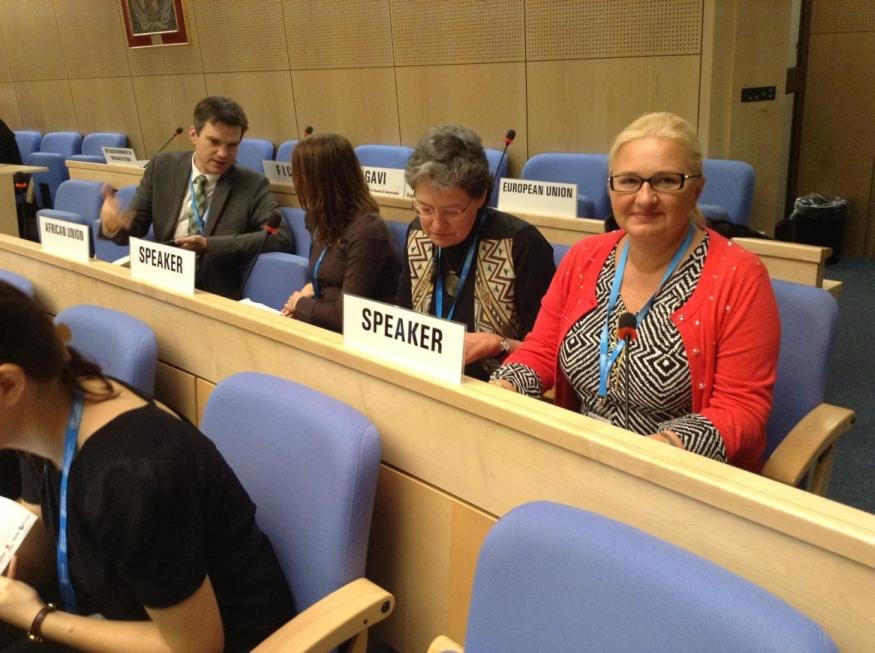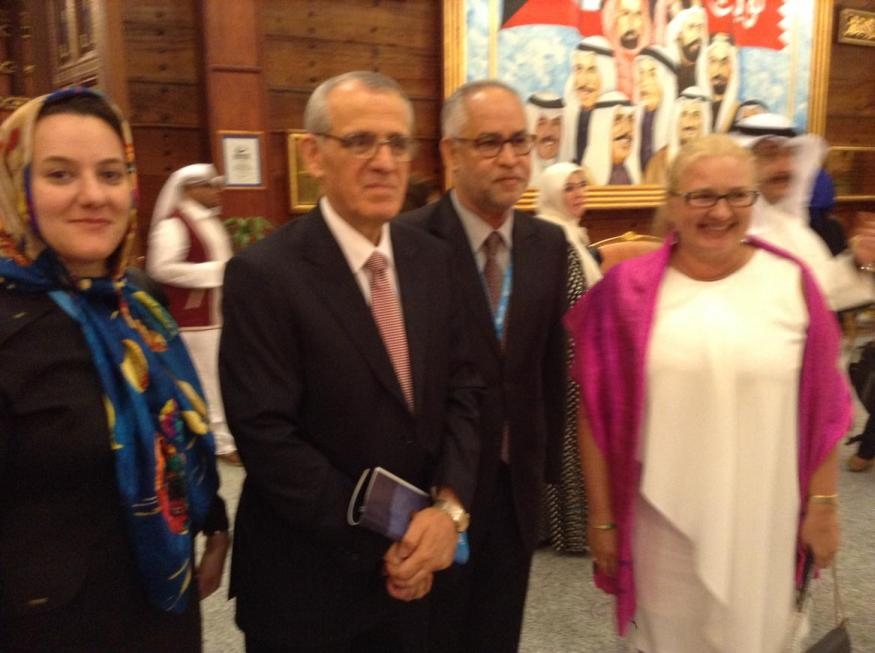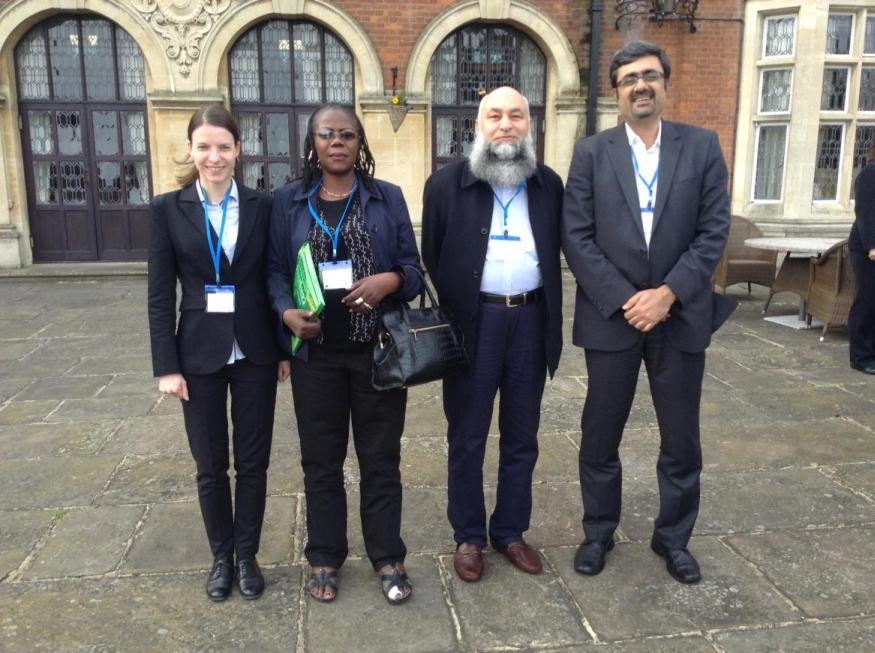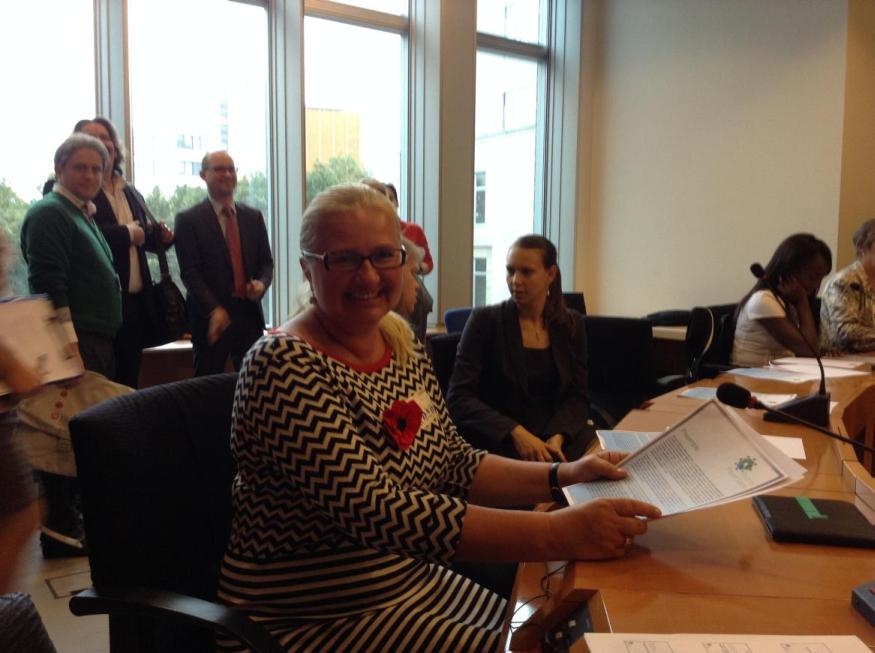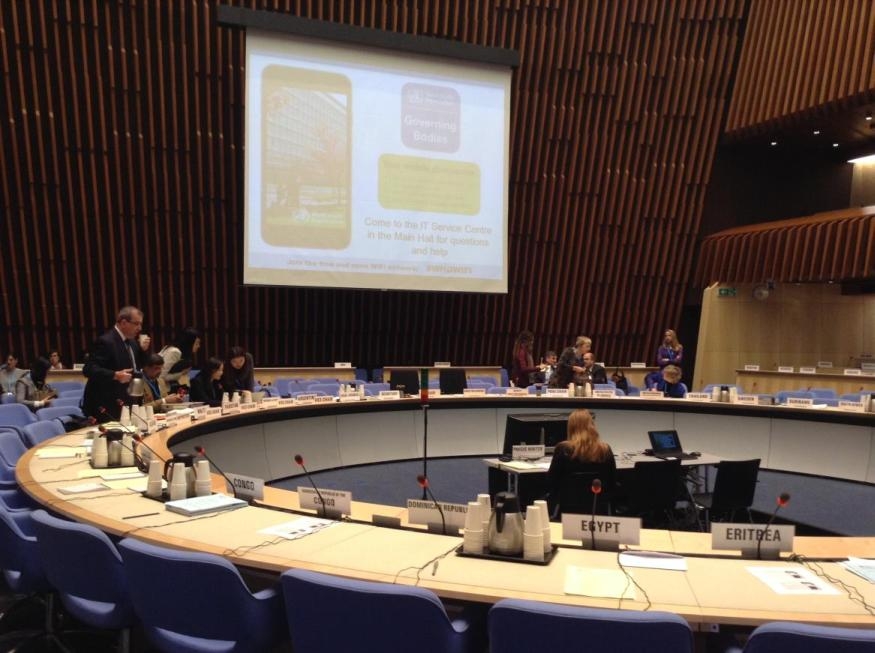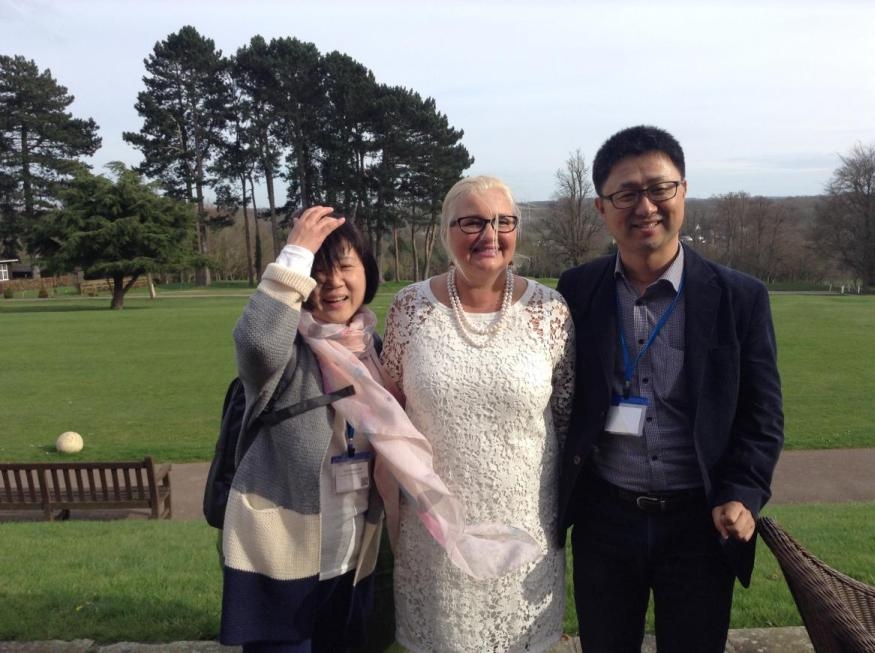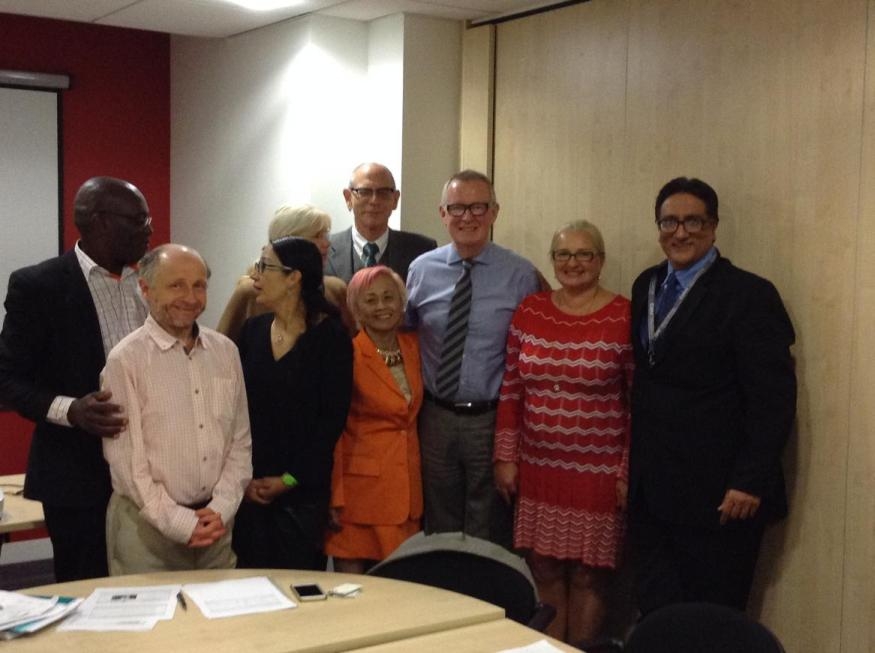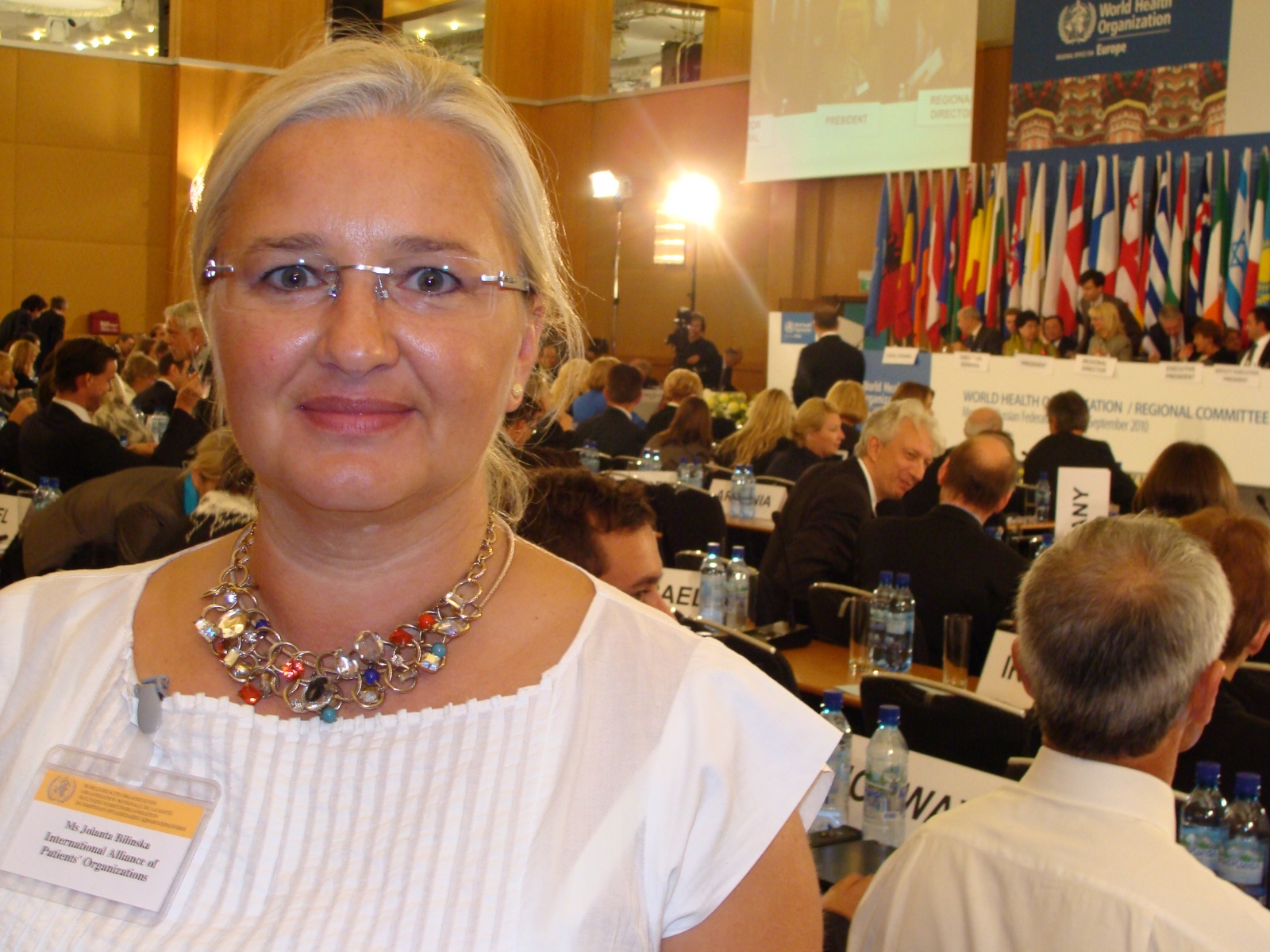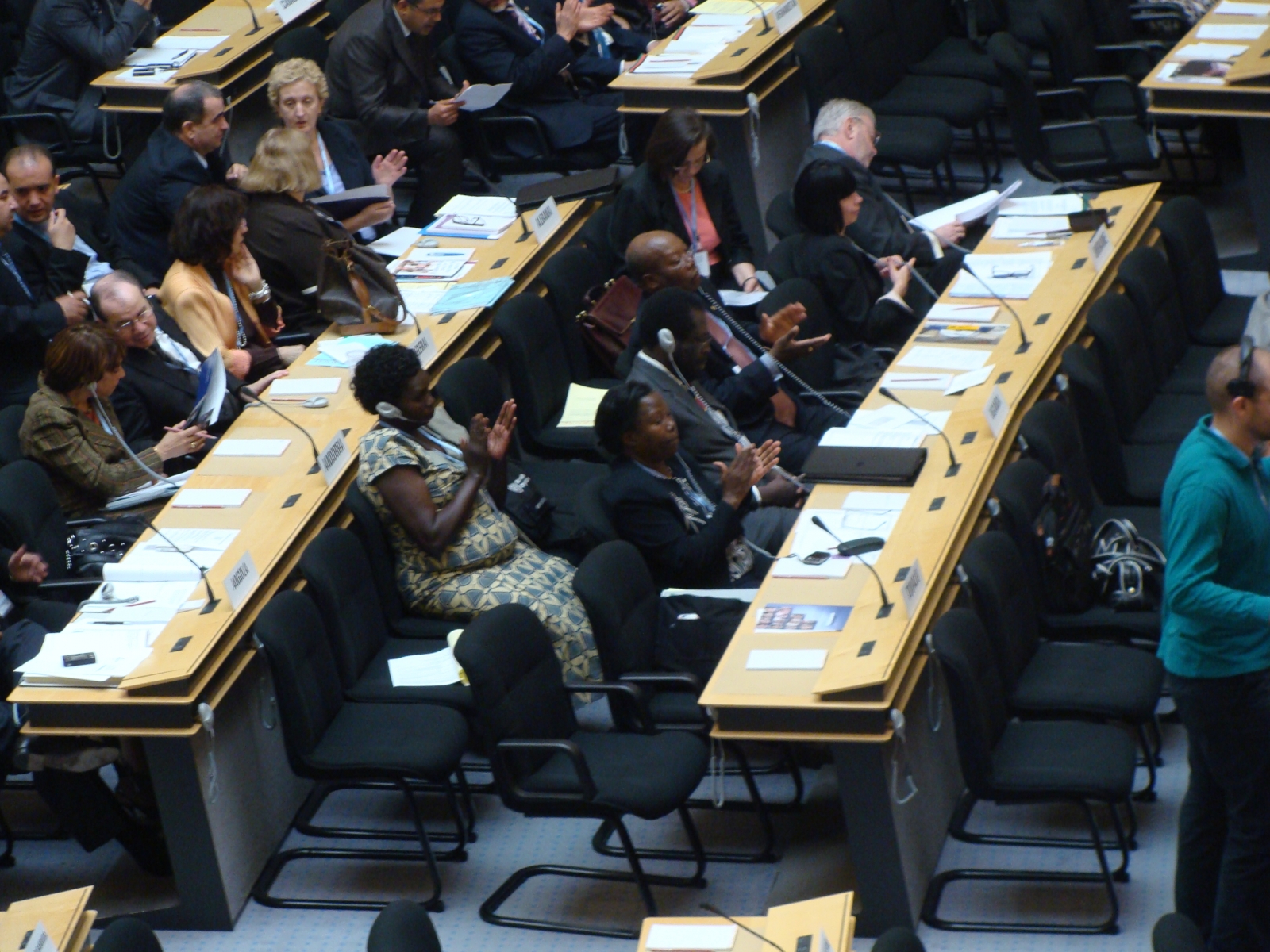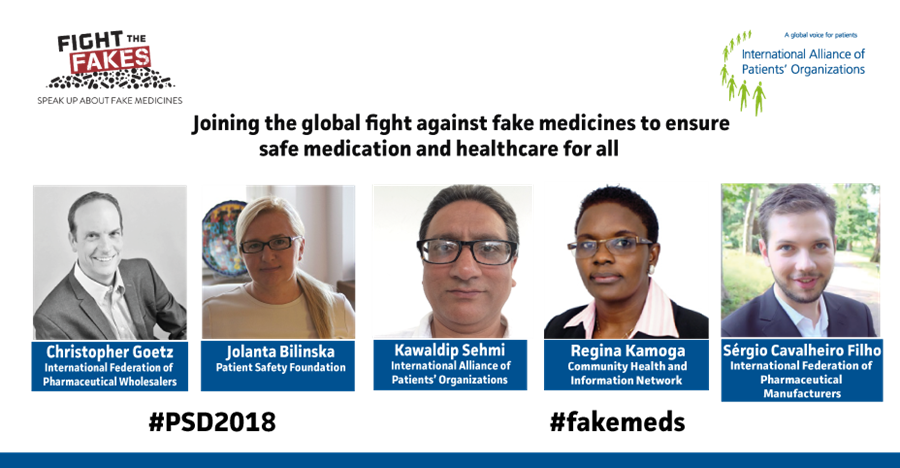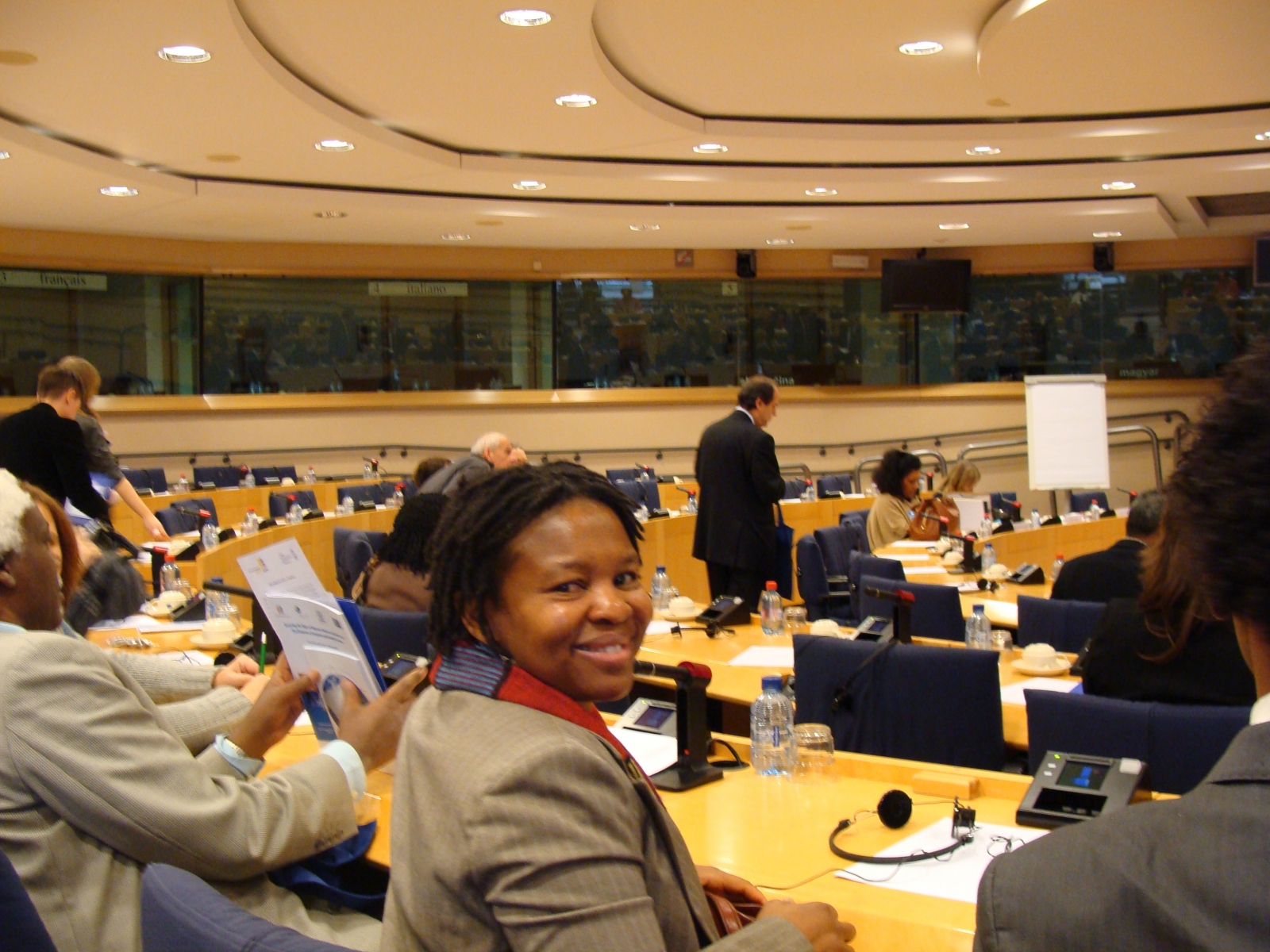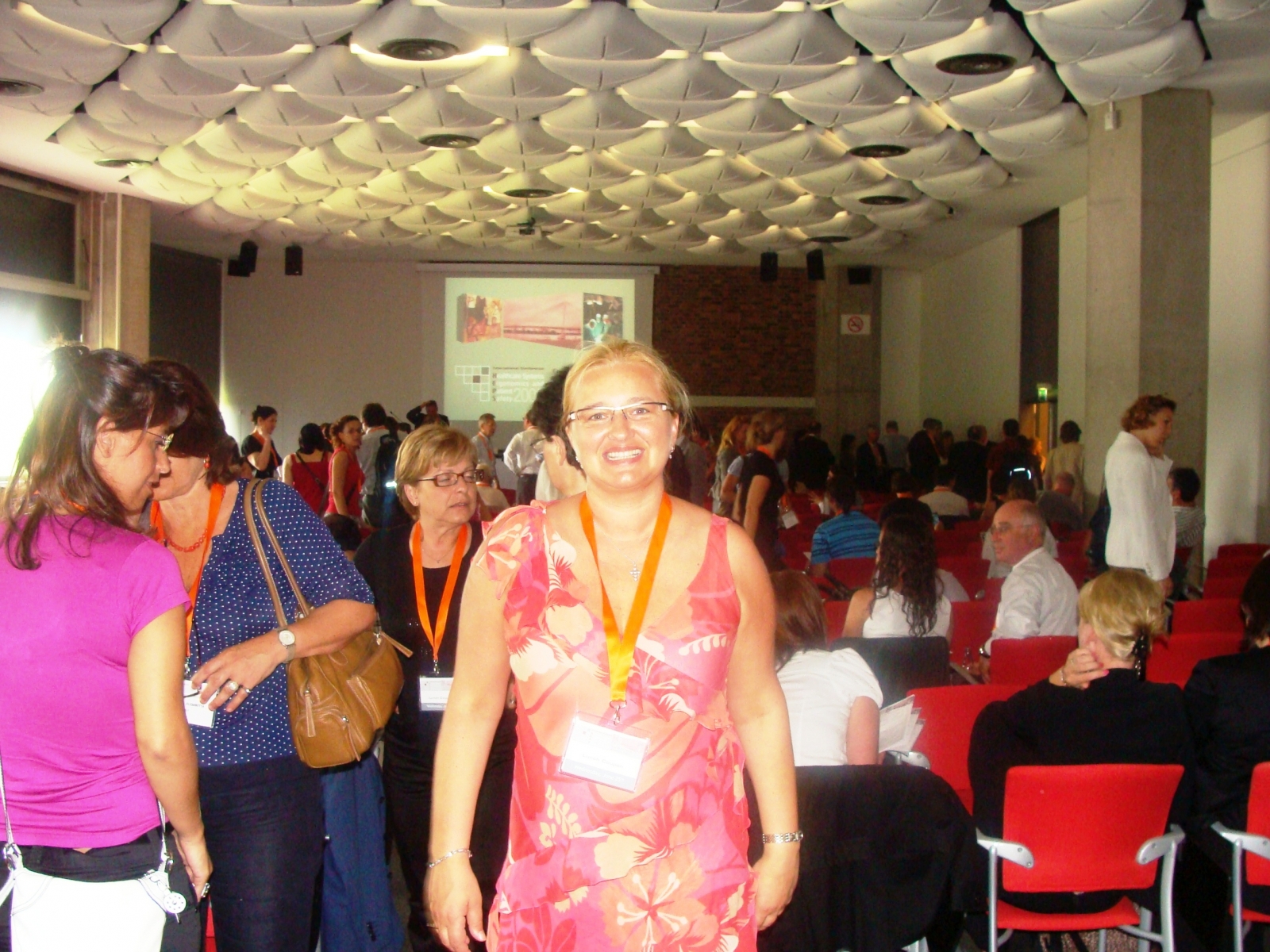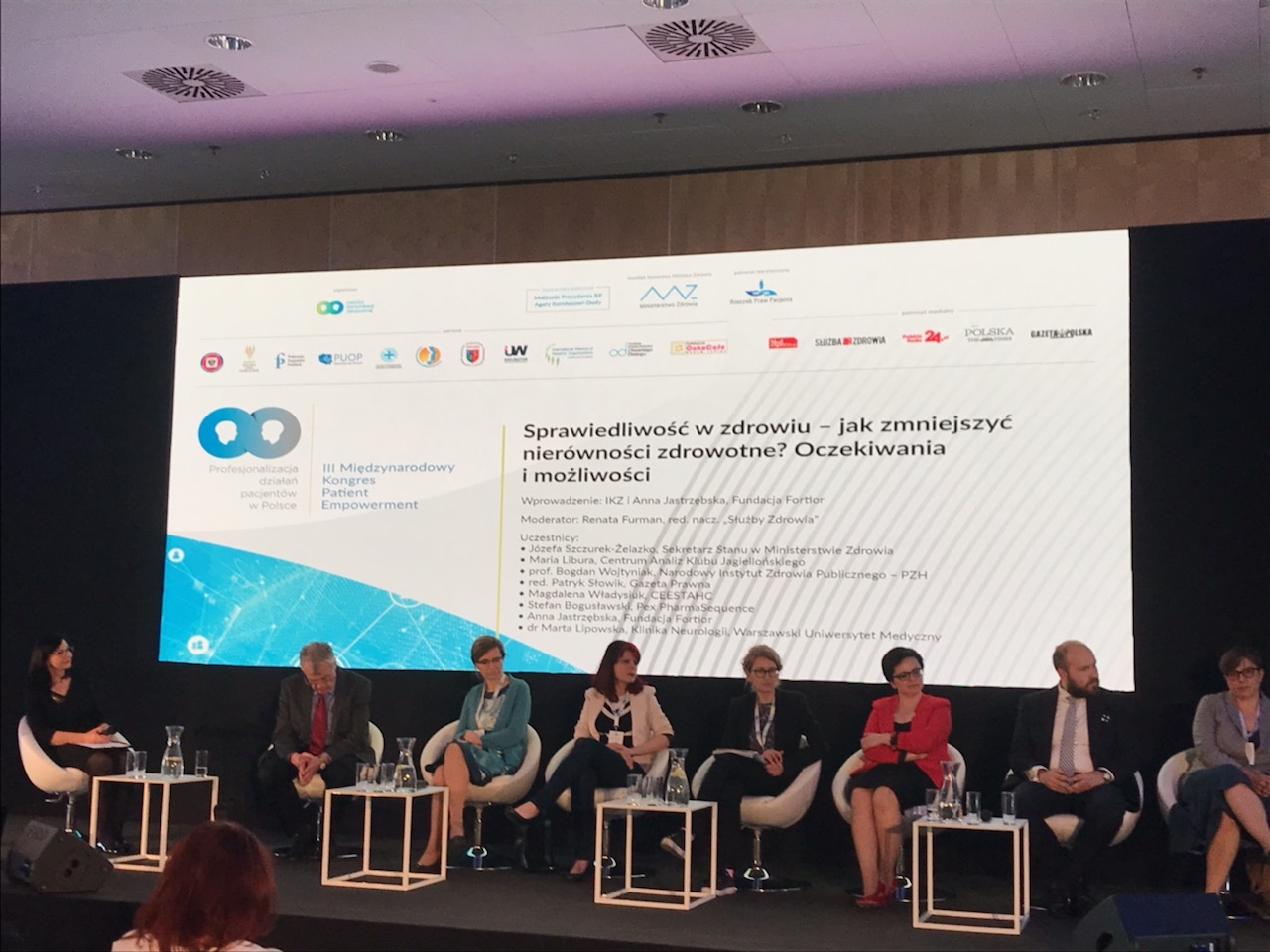Making patient-centered healthcare a reality for patients worldwide
‘Patients should be seen as a catalyst for change and a compass, giving direction to our efforts to reduce unsafe care’ said Sir Liam Donaldson, Chief Medical Officer for England and Chair of the WHO World Alliance for Patient Safety.
London, United Kingdom, 26 February 2008 – The 3rd Global Patients Congress of the International Alliance of Patients’ Organizations (IAPO) highlighted the progress being made worldwide to address the role of the patient as an essential partner in the design and delivery of healthcare.
The Congress, held in Budapest, Hungary from 20-22 February 2008, brought together over 180 delegates from around the world, representing patients and other stakeholders in health such as the European Commission, the World Health Organization (WHO) and global health professionals’ associations, with the aim of learning from each other’s experiences in developing patient-centred healthcare. Key note addresses demonstrated the central role that patients are increasingly playing in healthcare today. Sir Liam Donaldson, Chief Medical Officer, England and Chair of the WHO World Alliance for Patients Safety, Ms Katalin Rapi, Secretary of State for Health Policy at the Ministry of Health, Hungary and Mr. Andrzej Ryś, Director, Public Health & Risk Assessment at the European Commission, DG SANCO, all highlighted the importance of developing collaboration between patients and all other healthcare stakeholders.

The Congress’ key theme of patient-centered healthcare was complemented by a focus on Access to Healthcare, Patient Safety, Patient Information and Patient Involvement. Through workshops and plenary sessions, speakers demonstrated the progress that has been made in these areas since the previous Congress in 2006. More and more patients are working with healthcare providers to make patient-centered healthcare a reality, and patient groups increasingly achieve recognition for the contribution they make to the design and delivery of healthcare.
Dr Linda Milan shared with us the progress of the People at the Centre of Health Care project of the World Health Organization (WHO), Western Pacific Regional Office (WPRO). This project draws on the IAPO Declaration on Patient-Centered Healthcare to support its work to “better respond to the needs of all healthcare stakeholders and constituencies in a holistic manner”.
In his keynote address Sir Liam Donaldson highlighted the growing recognition given to patients as experts or teachers, helping to ensure that consumers receive the care they need in an appropriate and safe way. Sir Liam said that in the event of medical error we must always see the opportunity to forgive the error, “but we should not forgive an unwillingness to learn from it”. He went on to say that the patient should be seen as our conscience for safe care, a catalyst for change, a witness of the quality of care, a compass, giving direction to our efforts and as teachers in how we learn from unsafe care. The work of the WHO Patients for Patients Safety programme, led by Susan Sheridan for the WHO World Alliance for Patients Safety, exemplifies this approach through its Patient Champions. These Champions play a key role in improving patient safety both on a personal level in interactions with the healthcare system, but also by working in partnership with healthcare professionals, policy-makers and other stakeholders involved in healthcare.
Patient-centered healthcare and the valuable role of patients’ organizations was also the focus of the closing keynote address, given by Ms Katalin Rapi, Secretary of State for Health Policy at the Ministry of Health in Hungary. Ms Rapi described the Hungarian government’s efforts to provide meaningful support to civil society and patients’ organizations as a key part of its aim to modernize healthcare delivery in the country. Participating throughout the Congress, Ms Rapi described how much she had learnt from the different contributions and debates, and stressed that the Hungarian Ministry of Health shared the mission of IAPO in recognizing that “patient-centred healthcare can only be realised by all players working together.”
IAPO
calls on all stakeholders in healthcare to include patients in a
meaningful and sustainable way in all levels of their work and at all
points of decision-making, and to build on existing models of
involvement in collaboration with patients around the world. “To meet
patients’ needs, decisions that affect a patients’ healthcare, should
not be taken without the full involvement of the patient at all levels
of care, whether that be in the choosing of treatment options,
developing healthcare policy or designing healthcare systems.” Myrl
Weinberg, IAPO Chair and President of the National Health Council (USA).
Note to Editors:
1. IAPO’s 3rd Global Patients Congress, 20-22 February 2008, Budapest, Hungary
·
Over 180 participants attended from more than 30 countries including
Argentina, Australia, Belgium, Bulgaria, Canada, Croatia, Cyprus, Czech
Republic, Finland, France, Germany, Hong Kong, Hungary, Ireland,
Israel, Italy, Japan, The Netherlands, New Zealand, Nigeria, Pakistan,
Poland, Romania, Slovakia, Slovenia, Spain, Switzerland, Taiwan, Turkey,
Uganda, Ukraine, UK, USA and Zimbabwe.
·
Attendees came from disease specific and cross-disease organizations.
Between them, they represented millions of patients with conditions
including Alzheimer’s disease, arthritis and rheumatism, asthma,
autoimmune related diseases, Crohn’s disease, cancers, diabetes,
epilepsy, hemophilia, heart conditions, HIV/AIDS, incontinence and
bladder conditions, infertility, migraine and headache conditions,
multiple sclerosis, osteoporosis, polio, rare diseases and ulcerative
colitis.
·
Key note speakers included: Ms Katalin Rapi, Secretary of State for
Health Policy, Ministry of Health, Hungary; Sir Liam Donaldson, Chief
Medical Officer, England and Chair of WHO World Alliance for Patients
Safety; Mr Andrzej Ryś, European Commission, DG SANCO – Director, Public
Health & Risk Assessment, Professor Ton Hoek, General Secretary,
International Pharmaceutical Federation (FIP) and World Health
Professions Alliance (WHPA) representative; Dr Linda Milan, WHO, WPRO
Director, Building Healthy Communities and Populations
· Further information is available at www.patientsorganizations.org/congress2008.
2. About IAPO
·
IAPO is the only global alliance representing patients of all
nationalities across all disease areas and promoting patient-centred
healthcare worldwide. Our full members are patients’ organizations
through which IAPO represents at least 365 million patients worldwide.
· IAPO’s vision is that patients throughout the world are at the centre of healthcare.
· IAPO’s mission is to help build patient-centred healthcare around the world by:
· Realizing active partnerships with patients’ organizations, maximizing their impact through capacity building
·
Advocating internationally with a strong patients’ voice on relevant
aspects of healthcare policy, with the aim of influencing international,
regional and national health agendas and policies
·
Building cross-sector alliances and working collaboratively with
like-minded medical and health professionals, policy-makers, academics,
researchers and industry representatives
